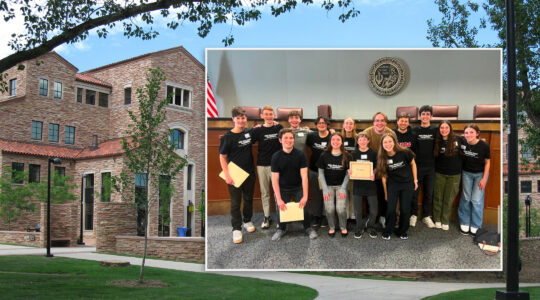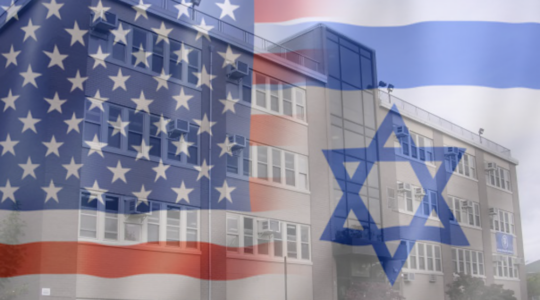When Israel announced its latest round of settlement construction in East Jerusalem, American Jewish leaders should have expected criticism of the action from the United States government. Such criticism reflects a 40-year U.S. policy stance that remains central to US-Israeli diplomacy, in addition to unprecedented military and material support for the Jewish state.
Yet, somehow, Anti-Defamation League director Abraham Foxman doesn’t think unchecked settlement construction, which destroys Israeli diplomatic credibility and progress toward a two-state solution, should be a major topic of discussion during meetings between President Obama and Prime Minister Netanyahu.
In a statement, Foxman called the administration's criticism “myopic” because it ignores “core issues” in American-Israeli relationship. But the President has demonstrated concern for all the core issues Foxman cites in his statement, from negotiations with Iran, to support for the IDF and Iron Dome during the summer’s escalation in Gaza. The President was correct to address the very issue that has consistently frustrated America’s efforts to reach lasting peace between Israelis and Palestinians.
No one can credibly claim that settlement construction is not a massive problem for Israel. The EU has said that future ties with Israel are directly connected to halting settlement growth and making progress toward a two-state solution. In a non-binding but still significant vote this month to recognize a Palestinian state, the British Parliament repeatedly stressed that continued settlement building makes Israel seem like a country without serious interest in a negotiated peace.
U.S. State Department Spokeswoman Jen Psaki said that the latest planned development would “distance Israel from even its closest allies and poison the atmosphere not only with the Palestinians but also with the very Arab governments with which Prime Minister Netanyahu said he wanted to build relations.”
Building over the Green Line that separates Israel from the Palestinian Territories stands in the way of a just, peaceful, and negotiated resolution to the conflict because it represents the most egregious type of unilateralism: Creating “facts on the ground” in an effort to bypass future negotiations. This construction destabilizes the Palestinian security situation, fuels inter-group tensions, and emboldens ultra-nationalist settlers such as those responsible for “Price Tag” terror attacks.
With Mr. Foxman’s experience and knowledge, he should be aware of the critical importance of the question of the settlements to Israel’s security and future. So why would he publicly dismiss and diminish it? With Foxman's statement, the ADL sends the message that if Israel and its friends ignore the settlements, they will cease to be a problem. The truth is that the problem grows larger the more it remains unaddressed and unspoken.
By demanding that the President address the recent violence in Gaza without acknowledging the role settlements play in the larger conflict, Foxman advocates for a status quo where extremists on both sides flourish and violence spreads. This summer’s fighting was merely the latest in a string of similar episodes: 2008, 2009, 2012. Instead of just another “pause,” American Jewish leaders should advocate for the sustainable, long-term solution that prudent leaders on both sides have long sought. Unfortunately, the ADL is sending precisely the opposite message.
Among American Jewish leaders, this kind of refusal to accept the consequences of settlement growth is depressingly common. Through such willful ignorance of or indifference to the harmful impact of settlement expansion and entrenchment, our communal leaders abdicate their responsibility to help stop it. Time and again they tell our elected officials that American Jews are willing to turn a blind eye to settlement construction, and that making Bibi Netanyahu look good is far more important than making Israelis and Palestinians safe.
I take Foxman at his word when he says the ADL supports a two-state solution. But if it refuses to come to terms with the threat settlement building poses to Israel’s diplomatic standing and domestic security, the ADL’s advocacy for Israel will continue to be insufficient and self-defeating.
Gabriel T. Erbs is the Northwest Representative to the J Street U Student Board, and a senior at Portland State University.
The New York Jewish Week brings you the stories behind the headlines, keeping you connected to Jewish life in New York. Help sustain the reporting you trust by donating today.




